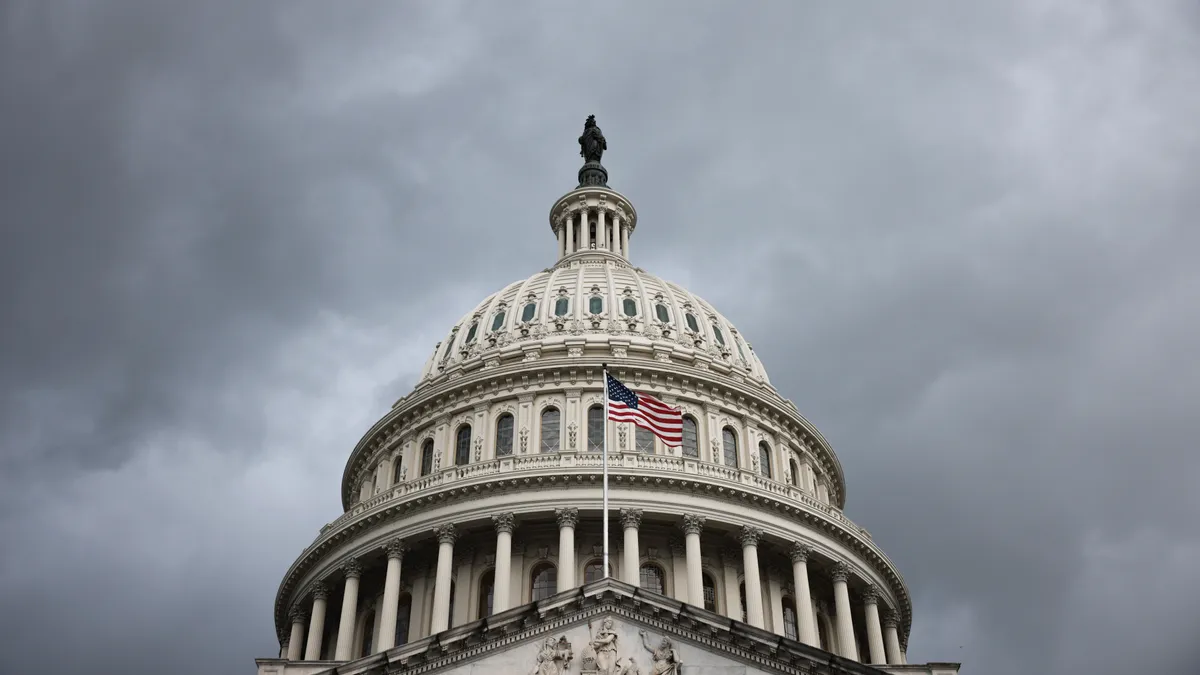Three nominees for posts as Federal Reserve governors stressed the importance Wednesday of tapering inflation toward its 2% target, but otherwise gave few suggestions on monetary policy during a hearing in front of the Senate Banking Committee.
“Right now, the inflation side is critical,” said Adriana Kugler, the World Bank’s U.S. executive director who, if confirmed to the open Fed job, would become the first Latina to serve on the central bank’s board.
"I spent my childhood in Colombia, where in the late 1970s and early 80s, inflation was very high, hovering about 25%,” Kugler said, according to Reuters. “This is something that you saw and felt in everyday life.”
Sen. Bob Menendez, D-NJ, took a moment Wednesday to focus not on Kugler’s policy stances but on her ethnic background.
"In the 110-year history of the Federal Reserve, there has never been a member of the Board of Governors who has the lived experience of being Latino in America," Menendez said, according to American Banker. "Today, we are taking momentous steps and are writing history in real time."
Menendez had expressed his disappointment several times last year when candidates of Latin origin were passed over for leading roles within the central bank.
The other two nominees facing the Senate panel Wednesday already hold posts at the Fed. President Joe Biden last month nominated Fed Gov. Philip Jefferson to serve as the central bank’s vice chair, a role vacated in February, when Lael Brainard left to become director of the White House’s National Economic Council. Biden also renominated Fed Gov. Lisa Cook to serve a full 14-year term.
For their parts Wednesday, Jefferson and Cook appeared to stick to the middle of the road. Both said any tightening of bank regulations after the failures of First Republic, Signature and Silicon Valley Bank should be tailored according to a bank’s size.
“I agree with tailoring — that [small banks] should not have to be burdened by the same requirements that large banks are, and that they should be able to thrive in these communities without the burden of significant regulation,” Cook said, according to Bloomberg.
Wednesday’s testimony comes amid calls for the Fed to increase capital requirements for banks to fend off further failures.
Facing that prospect, Jefferson on Wednesday said he would “always be thinking about that trade-off between making banks more resilient and sound, and credit availability.”
“I think we have to deal with always grappling with the trade-offs between those two things in setting the right level of capital,” he said, according to Bloomberg.
Wednesday’s hearing came, too, as the Fed’s vice chair of supervision, Michael Barr, is weighing several strategies to gain a fuller picture of bank health and prod supervisors to intervene more quickly in cases of distress. At the same time, the Justice Department has signaled it wants to boost its scrutiny of bank mergers.
Jefferson did not weigh in on stricter guidelines for bank mergers, but said, according to American Banker, "we don't want too much consolidation.”
The Senate confirmed Jefferson and Cook to their current roles in May 2022, but it was not without drama. Cook’s nomination last year needed a tie-breaking vote from Vice President Kamala Harris.
Some Republicans, at the time, challenged Cook’s experience level with monetary policy. Sen. Bill Hagerty, R-TN, said Cook’s academic background — with its emphasis on the cost of racial disparities — “doesn’t seem related to the mission of the Federal Reserve.”
That narrative continued Wednesday, when the banking panel’s ranking member, Sen. Tim Scott, R-SC, said two nominees "seem more interested in having government serve their personal ideologies and their political priorities.” He didn’t name them, according to Reuters, but signaled concern over their advocacy on race and the environment.
Scott said he favors Fed nominees "who want to serve the country and not have their positions be leveraged for their ability to weave into our overall philosophy their ideologies,” according to the wire service.












